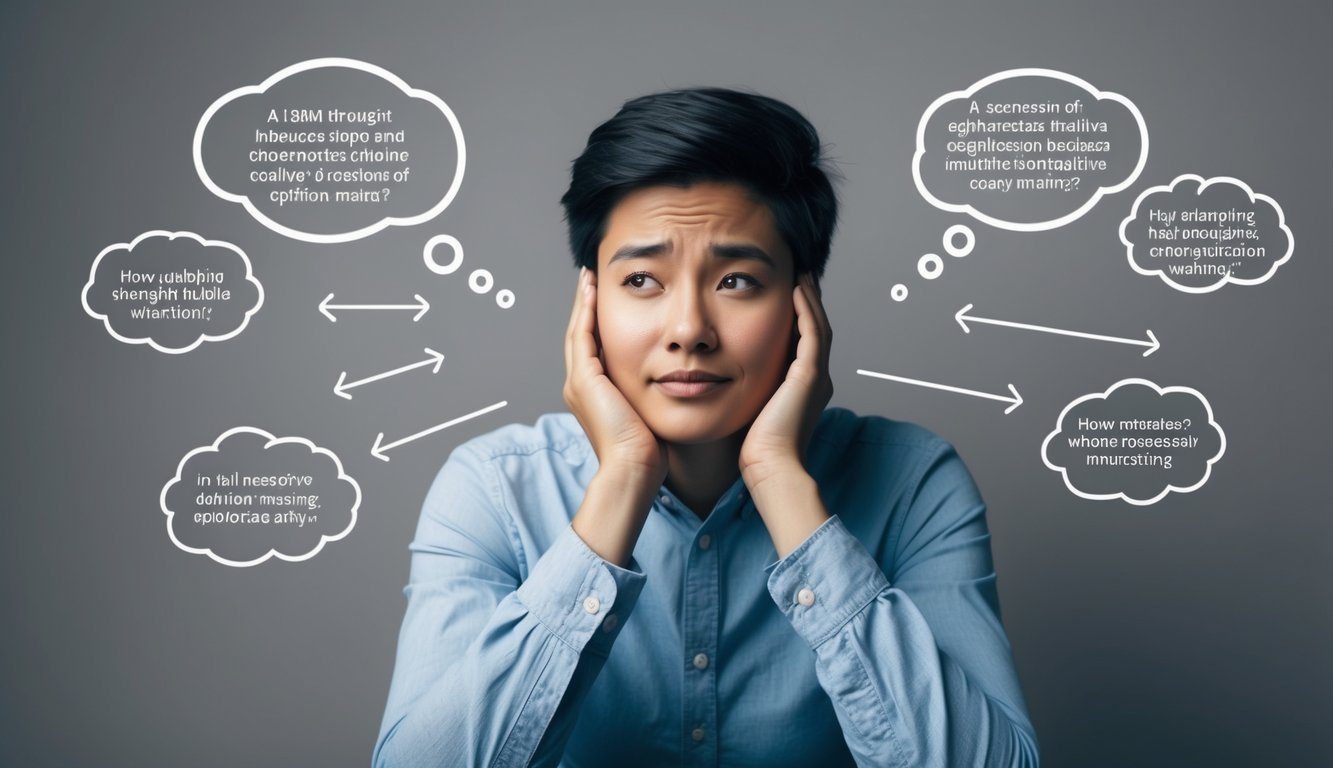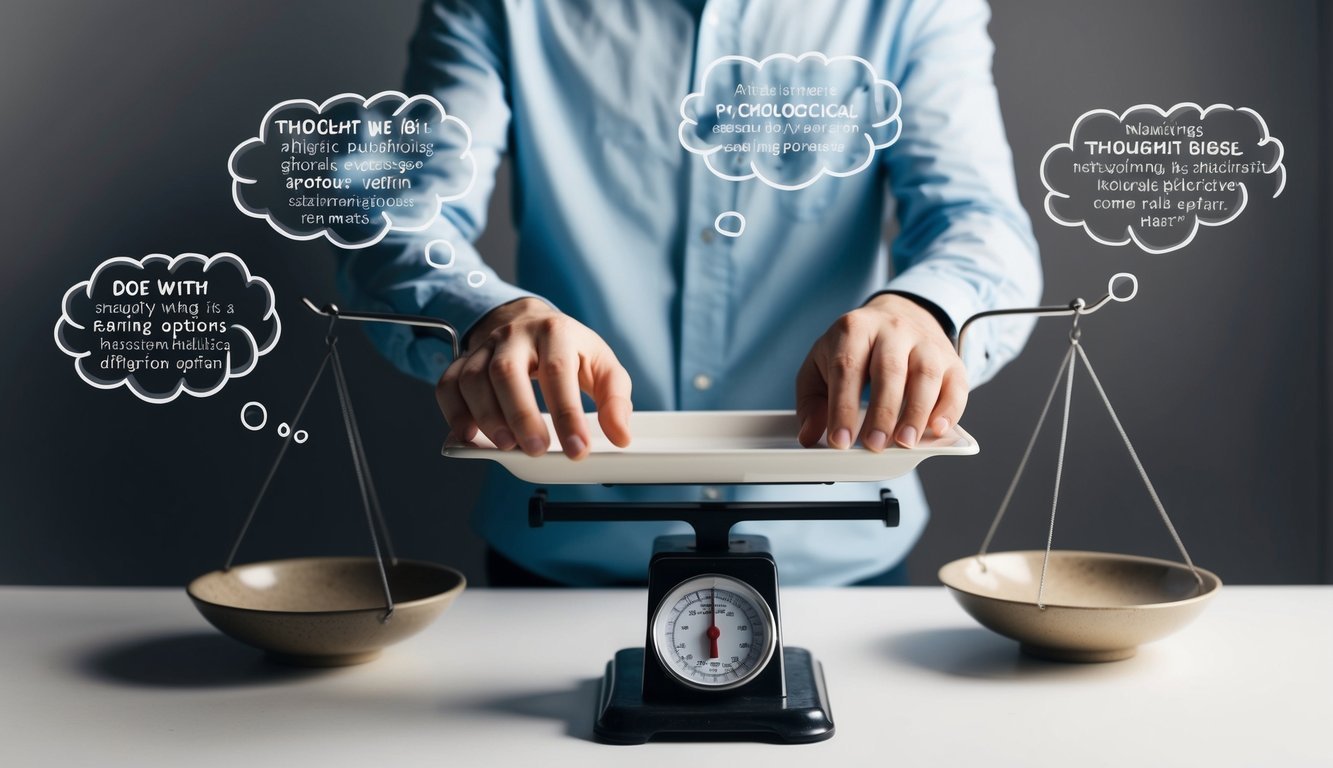Physical Address
304 North Cardinal St.
Dorchester Center, MA 02124
Physical Address
304 North Cardinal St.
Dorchester Center, MA 02124
Theoretical frameworks in decision-making include prospect theory, expected utility theory, and behavioral economics, highlighting cognitive processes, biases, and emotional influences that shape choices and outcomes.

Theories of decision-making offer organized methods for understanding how individuals make choices.
These frameworks shed light on the cognitive processes and elements that shape decisions.
Developed by Daniel Kahneman and Amos Tversky, prospect theory explains how individuals assess potential losses and gains.
It posits that people exhibit greater sensitivity to losses compared to equivalent gains.
The theory introduces reference points, suggesting that individuals evaluate outcomes in relation to these points rather than absolute metrics.
Are you tired of spinning your wheels and getting nowhere? Simply put, you’re out of sync: you’re out of alignment with your astral configuration.
But: there’s a kind of map that can help you reclaim your alignment. Think of it as your own personal blueprint to success and happiness: a blueprint that will help you live your most amazing life.
Get started here.
This often results in risk-averse behavior regarding gains and a tendency toward risk-seeking when facing losses.
Additionally, prospect theory emphasizes framing, which means that how choices are presented can significantly affect decision-making.
For instance, detailing a medical treatment through survival rates instead of mortality rates can change perspectives.
Research in psychological decision theory indicates that prospect theory effectively predicts real-world decision-making behaviors across various fields.
Expected utility theory suggests that rational decision-makers select options that maximize their expected utility.
This model assumes that individuals can assign probabilities to various outcomes and evaluate their subjective worth.
Key elements of expected utility theory include:
While expected utility theory offers a normative framework for decision-making, research reveals that individuals frequently diverge from its predictions in real-life situations.
Behavioral economics merges psychological insights within economic decision-making models, acknowledging that humans are not consistently rational and are often swayed by cognitive biases and emotions.
Key principles in behavioral economics include:
Behavioral economics has practical implications for policy-making, marketing, and personal finance, aiding in the understanding of seemingly irrational behaviors and providing strategies for enhancing decision-making practices.

Cognitive mechanisms significantly shape how people make decisions, influencing judgment, risk assessment, and problem-solving methods.
Cognitive biases have a profound effect on decision-making processes.
Heuristics, or mental shortcuts, facilitate quick judgments but can also lead to inaccuracies.
Common heuristics include:
These shortcuts can foster biases such as confirmation bias, where individuals pursue information that supports their existing beliefs, and overconfidence bias, which results in an exaggerated sense of one’s abilities or knowledge.
When encountering uncertainty, individuals often find it challenging to make optimal choices. Research in cognitive psychology has identified several factors influencing judgment under uncertain conditions:
Emotional states also contribute to decision-making under uncertainty.
Stress or anxiety may lead to more cautious choices, while positive moods can promote risk-taking.
Variability in individual risk tolerance plays a significant role in decision-making.
Influencing factors for risk assessment encompass:
Cognitive-emotional decision-making models indicate that emotions are pivotal in risk evaluation.
Feelings of fear and anxiety can prompt risk avoidance, while exhilaration may encourage risk-seeking actions.
Risk evaluation involves balancing potential gains against losses, with prospect theory suggesting individuals are generally more attuned to losses compared to equivalent gains.
Executive functions, which are higher-order cognitive processes, are crucial for effective decision-making.
Essential executive functions include:
These functions enable individuals to plan, prioritize, and make sophisticated decisions. Research on naturalistic decision-making has indicated that seasoned decision-makers often utilize pattern recognition and intuition, backed by well-developed executive functions.
Executive function impairments, which can stem from stress or fatigue, may result in poor decision outcomes.
Strategies to bolster these cognitive capabilities may enhance overall decision-making quality.

Emotions and psychological factors are integral in shaping our choices, often influencing the outcomes of our decisions in ways that may not be fully recognized.
Emotions have a profound effect on how we make decisions.
Positive emotions like happiness tend to lead to optimistic choices, while negative emotions such as anger or sadness may result in riskier decisions.
Studies indicate that people in positive moods often overestimate positive outcomes’ likelihood.
Research has shown that emotional states can overshadow logical reasoning.
For instance, fear can drive individuals away from potentially beneficial opportunities, while excitement might lead to impulsive choices with insufficient consequence evaluation.
Marketers often harness emotional decision-making in advertisements, connecting products to positive emotions to sway consumer preferences and buying behaviors.
Anxiety considerably affects risk perception and decision-making in uncertain situations.
Anxious individuals typically overrate the chances of negative outcomes, resulting in more cautious choices.
Elevated levels of anxiety can lead to:
Research suggests that anxiety may impair working memory and cognitive flexibility, essential components of effective decision-making.
Such impairments can contribute to suboptimal choices in complex scenarios.
Cognitive-behavioral strategies can assist in managing the effects of anxiety on decision-making by challenging irrational thoughts and fostering coping tactics to lessen anxiety’s impact.
Stress heavily influences decision-making processes.
Under acute stress, individuals tend to prioritize immediate rewards over long-term consequences, leading to decisions that may offer short-term relief but could be detrimental eventually.
Chronic stress can negatively impact:
These declines can compromise decision quality across diverse domains, including health, finance, and relationships.
Techniques for stress management, such as mindfulness and regular physical activity, can mitigate these adverse effects.
Research indicates that stress can modify risk perception, sometimes increasing risk-taking behavior, while in other situations, it can prompt overly cautious decisions.
Self-regulation is crucial for making effective decisions, involving impulse control, emotional management, and the ability to focus on long-term objectives.
Individuals with strong self-regulation often make more thoughtful and balanced choices.
Key elements of self-regulation in decision-making consist of:
Research shows that self-regulation skills can be cultivated through practice.
Methods like mindfulness meditation and cognitive restructuring can enhance self-regulatory capabilities.
Self-regulation is particularly vital for health-related decisions, aiding individuals in resisting immediate temptations to prioritize long-term well-being, such as choosing nutritious foods over high-calorie alternatives or maintaining an exercise regimen.

Decision-making processes are profoundly shaped by social contexts and moral judgments.
These elements influence our choices, often in subtle ways.
Social factors significantly influence individual decision-making.
People often look to others for behavioral cues, especially in uncertain scenarios.
This phenomenon, termed social proof, can yield both beneficial and harmful results.
Group dynamics also play a role; in collaborative settings, individuals might adjust their choices to align with the majority opinion, even if it contradicts their personal views.
This can lead to groupthink, where the desire for consensus stifles critical analysis.
Sociocultural norms and expectations influence decisions as well.
What is deemed acceptable in one culture may be viewed negatively in another, guiding behavior often without conscious awareness.
Social media and digital environments have added new dimensions to decision-making.
Continuous exposure to others’ views and lifestyles can sway personal choices, ranging from purchasing decisions to lifestyle preferences.
Moral considerations are central to many decision-making scenarios, particularly when ethical dilemmas arise.
Individuals frequently evaluate the implications of their choices against personal values and societal standards.
Cognitive biases can distort moral judgments; for example, the omission bias causes people to regard harmful actions as worse than equivalent inactions.
This bias can shape decisions in areas like healthcare and environmental policies.
Ethical frameworks such as utilitarianism or deontology offer various lenses through which to navigate moral decision-making.
These philosophical views can assist individuals when confronting complex ethical challenges.
Emotions significantly impact moral judgments as well.
Feelings such as empathy, guilt, and anger can affect how people interpret and react to moral problems, intertwining with rational thought in the decision-making process.
The gambling industry raises unique moral questions.
Decisions regarding gambling revolve around balancing personal freedom against potential harm to individuals and society, highlighting the intricate connections between social influences and moral evaluations.

Competence in decision-making has significant implications for individual and societal outcomes, affecting areas such as health-related choices and economic behaviors.
Decision-making competence refers to a person’s capability to make sound choices in various contexts.
It encompasses skills like understanding probabilities, resisting framing effects, and applying logical consistency.
Individuals with high decision-making competence typically enjoy more favorable life outcomes.
They tend to engage in better financial decision-making and are more resilient against cognitive biases.
Factors that shape decision-making competence include:
Enhancing decision-making competence can result in more beneficial choices across various aspects of life.
Training initiatives focused on probabilistic reasoning and cognitive debiasing have demonstrated effectiveness in improving these skills.
Decision-making competence is critical in both health and economic behaviors.
In the healthcare realm, it influences choices regarding treatment options, adherence to medical directives, and preventive actions.
Individuals with higher decision-making competence are more likely to:
In economic scenarios, decision-making competence affects financial outcomes, influencing behaviors such as saving, investing, and gambling.
Individuals endowed with superior decision-making skills typically:
Improving decision-making competence can lead to better health outcomes and enhanced financial stability.
Public health initiatives and financial literacy programs often aim to cultivate these skills to promote overall wellness.
“`